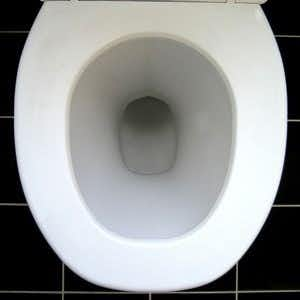
How do you feel about poop? Most people prefer not to talk about it. That’s why we have so many euphemisms: number two, stool, feces, manure, crap or BM for bowel movement. No wonder you probably never heard of a poop transplant.
Despite our reticence about this essential bodily function, fecal transplants are now a very hot research topic in the field of gastroenterology. Though they don’t call it a poop transplant, scientists are investigating the beneficial effects of moving microbes from healthy individuals into the digestive tracts of patients suffering from a variety of severe chronic conditions.
C Diff Infections Due to Antibiotic Use:
People who receive certain broad-spectrum antibiotics such as clindamycin (Cleocin) sometimes end up with life-threatening diarrhea brought on by bacterial overgrowth from Clostridium difficile. The resulting C. diff colitis can be very hard to treat. A study published in The New England Journal of Medicine (Jan. 31, 2013) reported that transplanting healthy donor feces into patients with recurrent C. diff infections was more effective than the standard treatment with an antibiotic like vancomycin.
Over the last decade gastroenterologists have rediscovered the effectiveness of the poop transplant. Doctors consider it an unorthodox treatment approach, although it was actually written up in 1958 in the journal Surgery (Nov. 1958). Denver doctors were faced with a number of patients experiencing life-threatening colitis brought on by antibiotics. They gave their desperate patients donor feces via enema to “re-establish the balance of nature” in the lower GI tract. The patients experienced “immediate and dramatic” improvement. The physicians concluded that “this simple yet rational therapeutic method should be given more extensive clinical evaluation.”
The History of Utilizing Poop Transplant:
It took more than 50 years, but many gastroenterologists are now employing this strategy. Although such microbial transplants may seem like a new concept, Chinese physicians practiced fecal transplantation as far back as the fourth century (PLOS Biology, July 12, 2016). The practice continued at least until the sixteenth century, when the reconstituted “medicine” was known as “yellow soup.” These days, Chinese scientists are contributing to medical understanding of fecal transplantation.
Overcoming the Yuck Factor:
There is a significant “yuck” factor to such a treatment. Perhaps that is why western practitioners have waited so long to explore the benefits of fecal microbiota transplantation (FMT), as it is currently termed. (“Poop transplant” sounds somewhat flippant.) Although FMT is used most often for treating C. diff. infections and intractable diarrhea, doctors are also experimenting with its use for inflammatory bowel conditions such as Crohn’s disease (World Journal of Gastroenterology, Nov. 7, 2013) or ulcerative colitis (PLOS One, June 27, 2016). Changing the microbial ecology of the gut seems to be helpful against recurrent C diff infections even when the patients are elderly (Digestive Diseases and Sciences, online July 22, 2016).
A Personal Story:
One visitor to our website related her own story:
“I suffered with C. diff that was not fazed by Flagyl or vancomycin. My insurance company spent thousands of dollars on medications for my C. diff but it came back each time as soon as I stopped using the meds.
“I wound up in the hospital and a gastroenterologist was brought in. He tried more vanco and Flagyl, with the same lack of results. Then he said that since I was 50 and should have a colonscopy screening, he would do a fecal transplant at the same time.
“My husband was the donor and his blood and stool was tested for multiple things to make sure he was not giving me something bad. The day of the colonoscopy transplant came and I never had diarrhea again. Not even a watery stool! I felt it was miraculous and would do it again before I try any medication.”
Readers who are interested in learning more about this topic may be interested in the hour-long interview we conducted in 2014 with Catherine Duff, founder and president of the Fecal Transplant Foundation and Lawrence J. Brandt, MD, Professor of Medicine and Surgery at the Albert Einstein College of Medicine (Show #935).

